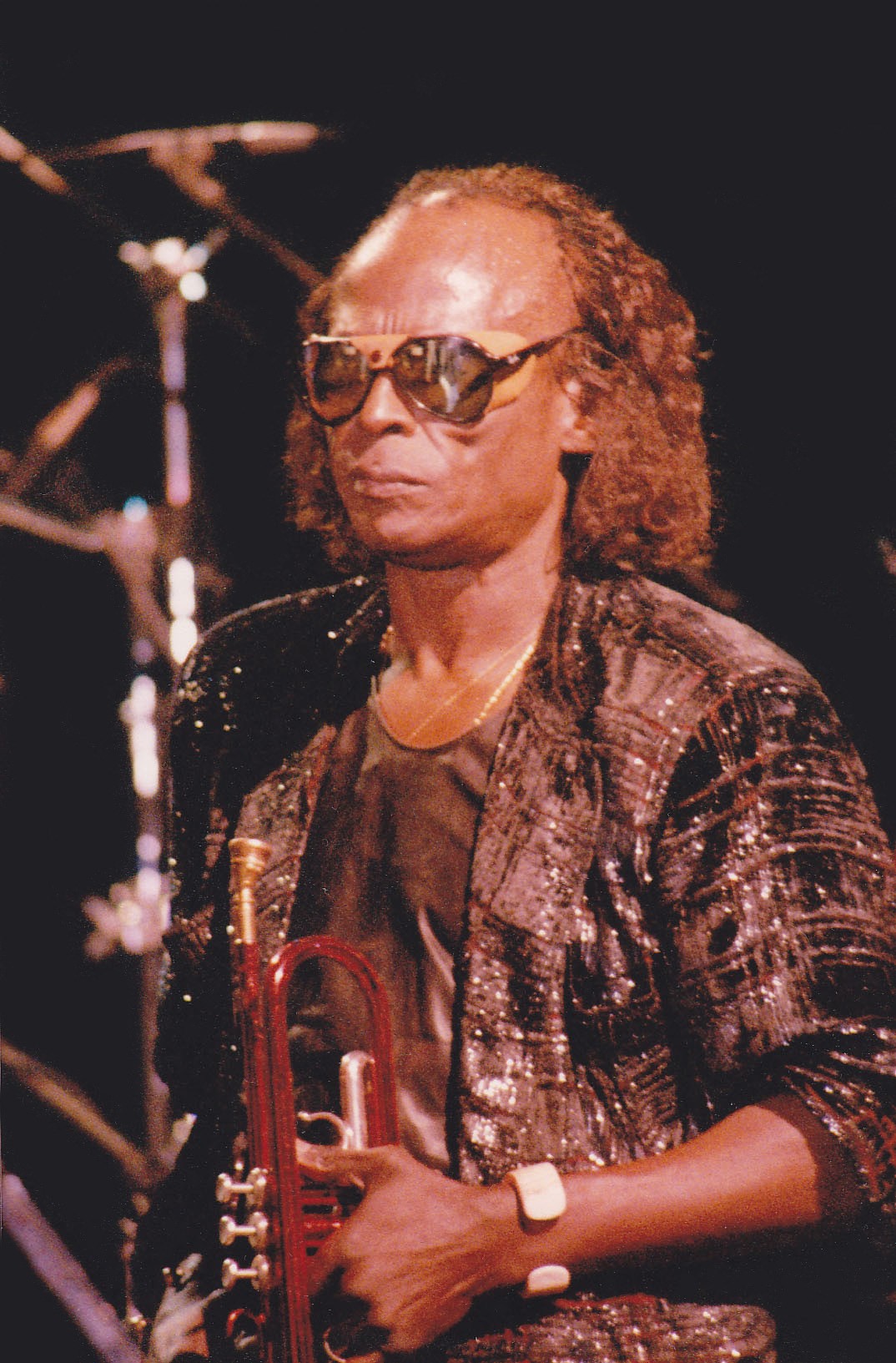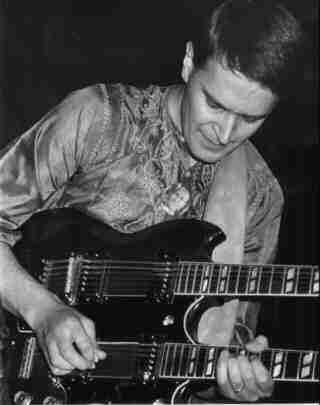|
Native Son (band)
Native Son was a Japanese jazz-funk and jazz fusion group. The group consisted of the following members: * Hiroshi Murakami * Kosuke Mine * Motonobu Ohde * Takehiro Honda * Tamio Kawabata * Hiroshi Fukumura Hiroshi Fukumura (福村博) (born February 21, 1949, Tokyo) is a Japanese jazz trombonist. Fukumura played with Sadao Watanabe for much of the 1970s, excepting a period where he studied in the United States at the New England Conservatory of Mus ... During their career they released 6 albums: Discography * (1979) Savanna Hotline - JVC * (1979) Native Son - JVC Side One: 1. Bump Cruising 2. Heat Zone 3. Breezin' & Dreamin' 4. Wind Surfing Side Two: 1. Whispering Eyes 2. Twilight Mist 3. Super Safari 4. Whispering Eyes (Reprise) Takehiro Honda: Fender Rhodes Piano, Hohner D-6 Clavinet, Yamaha CP 70 Solina Celesta Kohsuke Mine: Tenor Saxophone, Soprano Saxophone Motonobu Ohde: Electric Guitar Tamio Kawabata: Electric Bass Hiroshi Murakami: Drums Damiao Go ... [...More Info...] [...Related Items...] OR: [Wikipedia] [Google] [Baidu] |
Jazz-funk
Jazz-funk is a subgenre of jazz music characterized by a strong back beat (groove), electrified sounds, and an early prevalence of analog synthesizers. The integration of funk, soul, and R&B music and styles into jazz resulted in the creation of a genre whose spectrum is quite wide and ranges from strong jazz improvisation to soul, funk or disco with jazz arrangements, jazz riffs, jazz solos, and sometimes soul vocals. Jazz-funk is primarily an American genre, where it was popular throughout the 1970s and the early 1980s, but it also achieved noted appeal on the club-circuit in England during the mid-1970s. Similar genres include soul jazz and jazz fusion, but neither entirely overlap with jazz-funk. Jazz-funk is more arranged and features more improvisation than soul jazz, and retains a stronger feel of groove and R&B versus some of the jazz fusion production. Overview An extension of the jazz field, jazz-funk exhibits several distinctive characteristics. A first is the d ... [...More Info...] [...Related Items...] OR: [Wikipedia] [Google] [Baidu] |
Jazz Fusion
Jazz fusion (also known as fusion and progressive jazz) is a music genre that developed in the late 1960s when musicians combined jazz harmony and jazz improvisation, improvisation with rock music, funk, and rhythm and blues. Electric guitars, amplifiers, and keyboards that were popular in rock and roll started to be used by jazz musicians, particularly those who had grown up listening to rock and roll. Jazz fusion arrangements vary in complexity. Some employ groove-based vamps fixed to a single key or a single chord with a simple, repeated melody. Others use elaborate chord progressions, unconventional time signatures, or melodies with counter-melodies. These arrangements, whether simple or complex, typically include improvised sections that can vary in length, much like in other forms of jazz. As with jazz, jazz fusion can employ brass and woodwind instruments such as trumpet and saxophone, but other instruments often substitute for these. A jazz fusion band is less likely to ... [...More Info...] [...Related Items...] OR: [Wikipedia] [Google] [Baidu] |
Discogs
Discogs (short for discographies) is a database of information about audio recordings, including commercial releases, promotional releases, and bootleg or off-label releases. While the site was originally created with a goal of becoming the largest online database of electronic music, the site now includes releases in all genres on all formats. After the database was opened to contributions from the public, rock music began to become the most prevalent genre listed. , Discogs contains over 15.7 million releases, by over 8.3 million artists, across over 1.9 million labels, contributed from over 644,000 contributor user accounts – with these figures constantly growing as users continually add previously unlisted releases to the site over time. The Discogs servers, currently hosted under the domain name discogs.com, are owned by Zink Media, Inc. and located in Portland, Oregon, United States. History The discogs.com domain name was registered in August 2000, and Discogs itself ... [...More Info...] [...Related Items...] OR: [Wikipedia] [Google] [Baidu] |
Hiroshi Murakami
is a Japanese jazz drummer. Murakami began playing percussion as a teenager, and was playing in a group with Takehiro Honda at age 19. He would go on to play with Masabumi Kikuchi, Kosuke Mine, and Sadao Watanabe in the 1970s, in addition to drumming for the group Native Son. In 1981 he started working as a leader, and has continued playing as a sideman for, among others, Nobuyoshi Ino, Manabu Oishi, and Hidefumi Toki.Kazunori Sugiyama, "Hiroshi Murakami". '' The New Grove Dictionary of Jazz''. 2nd edition, ed. Barry Kernfeld Barry Dean Kernfeld (born August 11, 1950) is an American musicologist and jazz saxophonist who has researched and published extensively about the history of jazz and the biographies of its musicians. Education In 1968, Kernfeld enrolled at U .... References {{DEFAULTSORT:Murakami, Hiroshi 1948 births Japanese jazz drummers Musicians from Tokyo Living people ... [...More Info...] [...Related Items...] OR: [Wikipedia] [Google] [Baidu] |
Kosuke Mine
Kosuke Mine (峰厚介) (born Kenji Wakabayashi, February 6, 1944, Tokyo) is a Japanese jazz saxophonist. Mine played clarinet as a youth before switching to saxophone as a teenager. He began recording as a leader around 1970, and worked during this time with Masabumi Kikuchi, Joe Henderson, and Mal Waldron. He moved to New York City in 1973, but came back to Japan in 1975, and subsequently became a member of the fusion group Native Son. He has also worked with Nobuyoshi Ino, Sadao Watanabe, and Terumasa Hino. Discography * ''First'' (Philips, 1970) * ''Mine'' (Three Blind Mice, 1970) * ''2nd Album'' (Three Blind Mice, 1971) * ''Yellow Carcass in the Blue'' with Kimiko Kasai (Three Blind Mice, 1971) * ''Daguri'' (JVC Victor, 1973) * ''Out of Chaos'' (East Wind, 1974) * ''Sunshower'' (East Wind, 1976) * ''Solid'' (East Wind, 1976) * ''Major to Minor'' (Verve, 1993) References *Kazunori Sugiyama, "Kosuke Mine". '' The New Grove Dictionary of Jazz''. 2nd edition, ed. Barry Kernfeld ... [...More Info...] [...Related Items...] OR: [Wikipedia] [Google] [Baidu] |
Takehiro Honda
was a Japanese jazz pianist and band leader. Honda was born in Miyako, Iwate. He started playing piano at age five and studied at the Kunitachi College of Music, where he played in a quartet with Kazunori Takeda. By 1969 he was recording with a trio under his own name. He performed with Sadao Watanabe in 1973 and then formed the jazz-fusion band Native Son with Kosuke Mine, which toured internationally. Other credits include performing or recording with Hiroshi Murakami, Hiroshi Fukumura, Motohiko Hino, Shigeharu Mukai, Ron Carter, Tony Williams, Eddie Gómez and Eliot Zigmund. His son is jazz musician Tamaya Honda. He was the brother-in-law of Sadao and Fumio Watanabe (October 31, 1929 – August 4, 2004) was a Japanese actor most known for his work with Japanese New Wave director Nagisa Oshima. He was born in Tokyo and graduated from the University of Tokyo before joining the Shōchiku studio in 1956. Sele .... Discography *''The Trio'' (Trio, 1970) *''T. Honda Meets ... [...More Info...] [...Related Items...] OR: [Wikipedia] [Google] [Baidu] |
Hiroshi Fukumura
Hiroshi Fukumura (福村博) (born February 21, 1949, Tokyo) is a Japanese jazz trombonist. Fukumura played with Sadao Watanabe for much of the 1970s, excepting a period where he studied in the United States at the New England Conservatory of Music."Hiroshi Fukumura". '' The New Grove Dictionary of Jazz'', 2nd edition, ed. Barry Kernfeld. He led his own quintet, which included Shigeharu Mukai as a sideman, for a studio recording and a live release in 1973. He was a member of Native Son and also worked with Takehiro Honda, Gil Evans, Hidefumi Toki, and others. Discography *''Morning Flight'' (Three Blind Mice "Three Blind Mice" is an English-language nursery rhyme and musical round.I. Opie and P. Opie, ''The Oxford Dictionary of Nursery Rhymes'' (Oxford: Oxford University Press, 1951, 2nd edn., 1997), p. 306. It has a Roud Folk Song Index number o ..., 1973) *''Live:First Flight'' ( Trio Records, 1973) *''Hunt Up Wind'' with Sadao Watanabe (Flying Disk, 1978) *''Nice Day'' ... [...More Info...] [...Related Items...] OR: [Wikipedia] [Google] [Baidu] |
Japanese Musical Groups
Japanese may refer to: * Something from or related to Japan, an island country in East Asia * Japanese language, spoken mainly in Japan * Japanese people, the ethnic group that identifies with Japan through ancestry or culture ** Japanese diaspora, Japanese emigrants and their descendants around the world * Japanese citizens, nationals of Japan under Japanese nationality law ** Foreign-born Japanese, naturalized citizens of Japan * Japanese writing system, consisting of kanji and kana * Japanese cuisine, the food and food culture of Japan See also * List of Japanese people * * Japonica (other) * Japonicum * Japonicus * Japanese studies Japanese studies (Japanese: ) or Japan studies (sometimes Japanology in Europe), is a sub-field of area studies or East Asian studies involved in social sciences and humanities research on Japan. It incorporates fields such as the study of Japanese ... {{disambiguation Language and nationality disambiguation pages ... [...More Info...] [...Related Items...] OR: [Wikipedia] [Google] [Baidu] |

